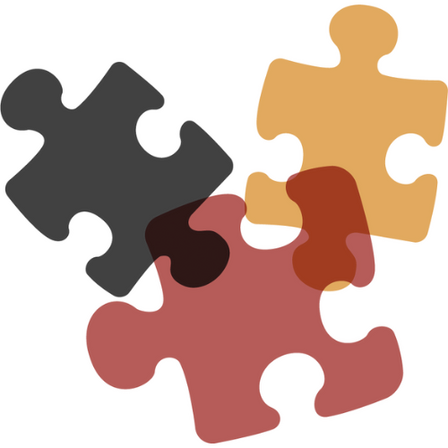
Attachment Puzzle
Sessions: 8
Lecture: 8h 18m
Certificate: 16+ hrs
200 CAD
The science of relationship exists in fragmented pieces all over the empirical map: biology, sociology, embryology, ethology, epigenetics, neuroscience, psychology, medicine, and so on. Neufeld puts the puzzle pieces together to create a cohesive and comprehensive model of attachment that has profound implications for parenting, teaching, and treatment.
As is the case with all our courses, this course features lectures by Dr. Neufeld, carefully curated support for enriched study, study aides, the opportunity to ask questions of trained faculty or course facilitators, a year's access to the campus to enable study at one's own pace, and a certificate of attendance upon completion. For more information, consult the "about our courses" page.
COURSE SUMMARY
There is no human force more powerful yet less understood than attachment. It is both the foundation and context for all human interaction, never mind parenting, teaching, and treatment. This course contains Neufeld's unique contributions to the science of attachment, outlining his six-root model of attachment, the purpose of attachment, the polarization of attachment, the cultural rituals of attachment, and much, much more. In understanding what is meant to happen attachment-wise, we can also understand what can go wrong and take steps towards right relationship. The keys to parent and teacher empowerment, as well as effectiveness, lie in the nature of the attachments of our children and students.
SUITABILITY/APPLICABILITY
This course is primarily directed towards helping professionals involved with children, including pediatricians, social workers, child psychiatrists, child psychologists, pediatric nurses, as well as others involved in children. The course is open to all who wish to understand the science of relationship as it applies to children.
SAMPLE TOPICS
- the diverse manifestations of the universal pursuit of proximity
- Neufeld's six-root model of the development of attachment
- the meaning of shyness and oppositionality in the context of attachment
- how to recognize attachment problems regardless of their manifestation
- how attachment is meant to be the context for parenting and education
- how to recognize when threats to togetherness have been too much to bear
- the many faces of defensive detachment in children and in adults
- the impact of competing attachments, including when peers replace parents
- how to harness the power of attachment and foster right relationship
- how to construct the village of attachment that every child needs
COURSE OUTLINE
The course is structured into eight sessions with each session including approximately one hour of instructional video by Dr. Neufeld.
- Session 1 — The Construct of Attachment: naming the elephant in the room
Attachment impacts everyone, yet is rarely put into words. In this session, the various pieces of the attachment puzzle are identified, attachment is defined, and the hierarchical nature of attachment is discussed. The "alpha complex" is also introduced. - Session 2 — Receptivity and Empowerment: cultivating right relationship
Ignorant of attachment, we have made false assumptions regarding children’s receptivity to care and direction. Once understood, it becomes obvious that children were meant to be dealt with in the context of their attachment to the adults responsible for them. The implications are discussed, and the constructs of peer orientation and counterwill are introduced. - Session 3 — Becoming Attached: six stages to full potential
The human capacity for relationship is a potential that only fully develops when conditions are conducive. The first six years of life are when this basic human capacity begins to unfold. - Session 4 — Attachment and Maturation: bringing attachment to fruition
Maturation is the natural and spontaneous outcome of fulfilling attachment. Pushing independence and societal fit is counterproductive. Children must find rest from the work of attachment for healthy development to occur. - Session 5 — Shyness and Competing Attachments: handling protective instincts
One cannot make sense of a child without an understanding of the polarized nature of attachment. Shyness serves an important function in preserving existing attachments and should be honoured rather than countered. - Session 6 — The Separation Complex: uncovering the roots of anxiety, aggression, and bullying
Nothing impacts mammals more than facing separation. The "separation complex" is introduced as the core of alarm problems, alpha problems, aggression problems, the bully instinct, and much more. - Session 7 — Defensive Detachment: bridging what could divide
The attachment brain’s ultimate defense is to reverse the attachment instincts. This reaction can be situational and temporary or chronic and pervasive. Understanding this attachment reversal is essential to dealing with wounded children. - Session 8 — The Attachment Cure: working with wounded children
The closest we could come to a panacea for children’s problems would be to reduce the separation they are facing. This session explores the ways we as adults can do this for the children in our care.
Inquiries
If you have questions or require additional information that you cannot find on our website or FAQ page, you may contact our office on our Inquiries page.
Charity & Non-Profit Status
The Neufeld Institute is a registered Canadian charitable organization under the name Neufeld Institute Foundation and is also registered as a NPO in British Columbia. If you would like to make a contribution to us, please go to our donation page.
Stay Connected with the Neufeld Institute
Sign up for our newsletter to receive insights, editorials, and updates on new courses, webinars, and scheduled classes — all rooted in the Neufeld approach. Whether you're a parent, educator, or professional, our resources are here to help you make sense of the children in your care.
